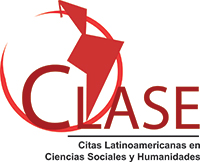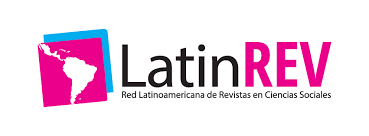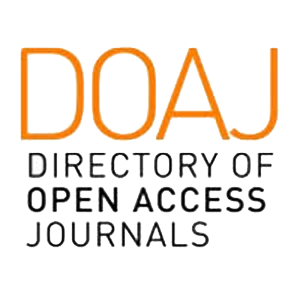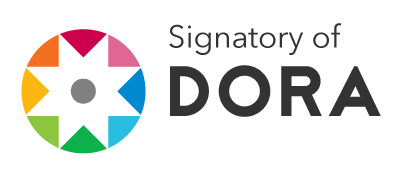La demanda de educación superior en México 2016
Abstract
Pioneer theoretical approach from Becker (1987) and some modern hypothesis (Carnoy 2002; Llamas 2017) are analyzed and used to propose the estimation of the demand of higher education of the households. The price is represented by the relative labor incomes of occupied works with high school with respect to occupied workers with higher education; in turn, the amount is measured by the proportion of student of higher education with respect to members of the household within the age of reference. The selected control variables are chosen according with the modern concepts of Plan of life of the households, as well as Integrated knowledge required in the labor market (between others, educational climate, type of household, urban household, relative importance of public education). A model of demand of higher education is estimated, multiple linear regression with cross section data, using microdata of de ENIGH 2016. The estimations show that the relative labor incomes are not statistically significant, while the other variables are. That is, the social variables included in the variable Life Plan of the Households (per cápita income, educational climate, nuclear household, public education, women head of household, urban environment) have relevance in the higher education demand of the Mexican households in the year 2016. Such demand is considered a sub-plan of the bigger one. It is a theoretical challenge to consider the variables and their empirical measurement contained in the Life Plan of the Households; also, the public policy challenge is to take care of these included variables because some of them are significant determinants of the higher education demand.
Downloads
References
Acemoglu, D. (2002), “Directed Technical Change”. The Review of Economic Studies, 69, 781-809.
Acevedo, S., Zuluaga, F., & Jaramillo, A. (2008), “Determinantes de la demanda por educación superior en Colombia”, Revista de Economía del Rosario, 121-148.
Becker, G. (1987). Tratado sobre la familia. Madrid: Alianza.
Becker, G. S. (1987). Teoría económica. México: Fondo de Cultura Económica.
Becker, G. S. (1994). Human Capital: A Theoretical and Empirical Analysis with Special Reference to Education (3rd Edition). Chicago and London: National Bureau of Economic Research.
Bowls, Samuel y Gintis, Herbert (2011). A cooperative species: human reciprocity and its evolution. Princeton University Press.
Cañabate, D. A. (1998). La demanda de educación superior en el sistema público catalán. Barcelona: Universidad Politécnica de Cataluña.
Carnoy, M. (2000). Sustaining the new economy. Work, family and Community in the Information Age. Cambridge: Harvard University Press.
Checchi, D. (2005). The economics of education. Human Capital, family background and Inequality. Cambridge: Cambridge University Press.
Cohn, E. (1990). Los beneficios de la educación. Michigan: Pergamon Press. CONEVAL . (24 de mayo de 2018). CONEVAL .
Gujarati, D., & C. Porter, D. (2009). Econometría. México: McGraw Hill/Interamericana Editores S.A. de C.V.
Hernández Torres, M. (Julio de 2013). “Repercusiones de los estudios de maestría en la trayectoria profesional de posgraduados de la Universidad de Colima”. Villa de Álvarez, Colima, México: Universidad de Colima.
Hirsch, F. (1976). Social limits to growth. Massachusetts: Twentieth Century Fund.
Ibarra Colado, E., & Porter Galetar, L. (2007). “La evaluación como herramienta de control: lecciones mexicanas sobre las disputas con los mercaderes del templo del saber”. En M. A. Navarro L., & I. Sánchez Rodríguez, Transformación mundial de la educación superior. Puebla, México: Universidad Iberoamericana Puebla, pp. 169-222.
Iglesias Garrido, J. (2005). Capital humano y señalización. Bellaterra, Barcelona, España: Universidad Autónoma de Barcelona.
Jinés Mora, J. (1988). Motivaciones socioeconómicas de la demanda de educación superior. Ekonomiaz.
Johnson, G. (1997), “Changes in earnings inequality: the role of demand shifts”, Journal of Economic Perspectives, vol. 11, núm. 2, primavera 1997, pp. 41-54.
Lara Caballero, M., & Llamas Huitrón, I. (2010). “Permanencia educativa en los hogares rurales. El caso de México 2005”. En I. Llamas Huitrón, N. Garro Bordonaro, & G. Campos Ríos, Política Social: enfoques y análisis. D.F., México: Universidad Autónoma Metropolitana, pp. 169-209.
Llamas Huitrón, I. (2017). Educación y desarrollo socioeconómico en los países en desarrollo. Borrador. Iztapalapa, Ciudad de México, México.
Llamas Huitrón, I. (2013). “Desigualdad y gasto educativo en los hogares mexicanos 1996- 2010”. En G. Félix Verduzco, & G. Aboites Manrique, Dimensiones socioeconómicas de la pobreza en México. Saltillo, México: Plaza y Valdés S.A. de C.V., pp. 41-72.
Llamas Huitrón, I. (2014). Utilitarismo y contractualismo. Fundamentos para la evaluación de políticas públicas. Ciudad de México: Gedisa.
López Lubian, F. J. (1981). La demanda social de educación superior. Estudio de la Universidad de Barcelona. Barcelona, España.
Martínez Torres, J. A. (mayo de 2012). Factores de mediación en la posición laboral y el ingreso de los profesionistas de las áreas de ingeniería y jurídico administrativas en tres localidades de Tamaulipas. Tesis doctoral. Ciudad Victoria, Tamaulipas, México: Universidad Autónoma de Tamaulipas.
Mincer, Jacob (1958), “Investment in human capital and personal income distribution”, Journal of Political Economy, Agosto.
Mora Ruiz, J. G. (1990). La demanda de educación superior. Madrid: Consejo de universidades. Secretaría General.
Pollak, R. A. (2002). Gary Becker ́s contributions to family and household economics. Cambridge: National Bureau Of Economic Research.
Rawls, J. (1971). A Theory of Justice. Cambridge, MA : Harvard University Press.
Rawls, J. (1999). A Theory of Justice. Cambridge, MA : Harvard University Press. Edición revisada.
Wooldridge, J. M. (2010). Introducción a la econometría. Un enfoque moderno. Ciudad de México: Cengage Learning Editores, S.A. de C.V.

This work is licensed under a Creative Commons Attribution-NonCommercial-ShareAlike 4.0 International License.














